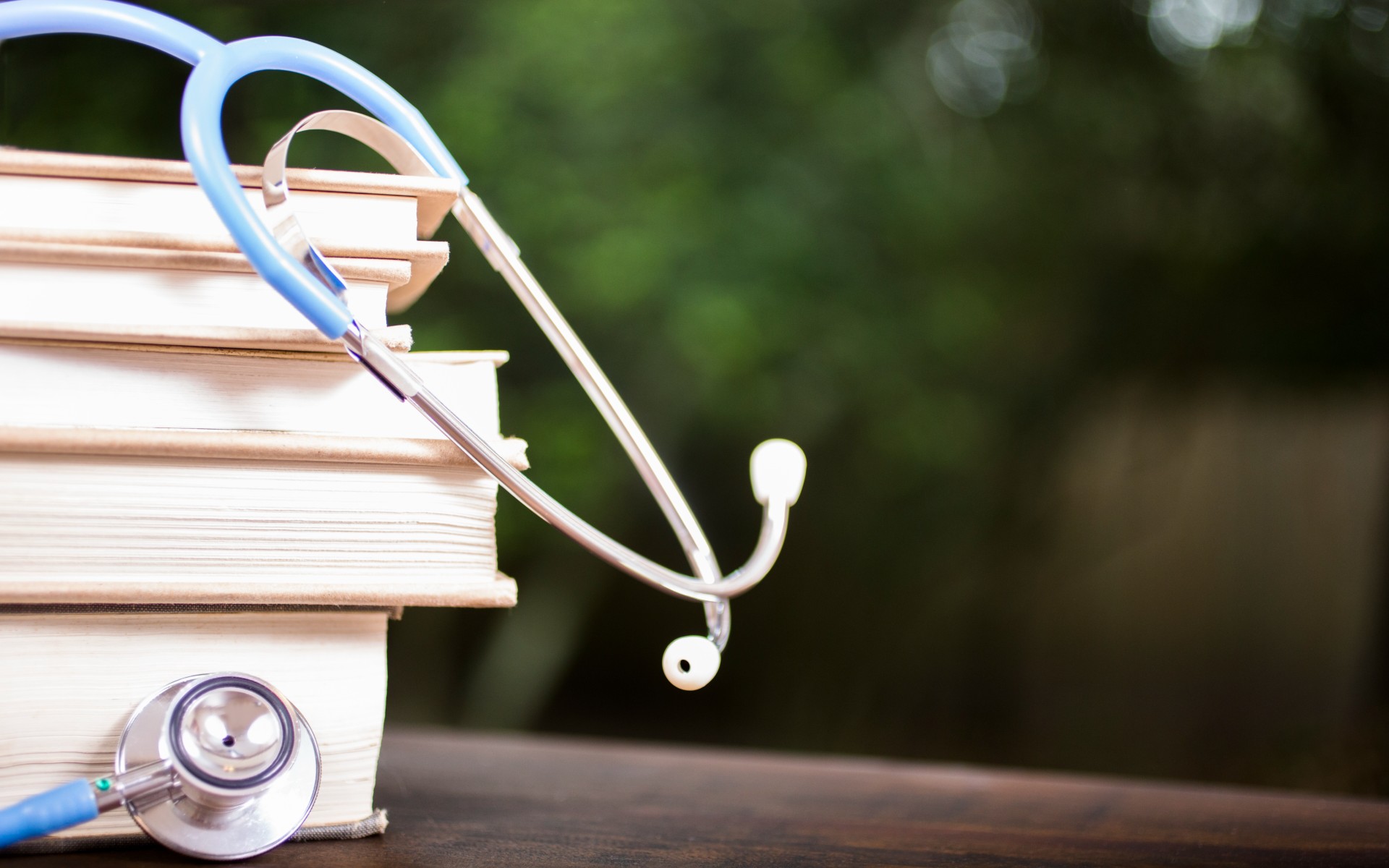Anastrozole: the daily breast cancer pill tipped to save thousands of lives
Existing treatment approved for preventative use under 'pioneering' NHS drug repurposing scheme

A free daily email with the biggest news stories of the day – and the best features from TheWeek.com
You are now subscribed
Your newsletter sign-up was successful
Nearly 300,000 women in England will be offered a preventative pill to help them avoid breast cancer.
The drug, anastrozole, has been available for years as a breast cancer treatment, and had already been recommended for prevention by the UK's health cost regulator. But it has become the first drug to be licensed for a new use under the "pioneering" multi-agency Medicines Repurposing Programme set up in 2021, said NHS England.
Breast cancer is the most common cancer in England, with about 50,000 people diagnosed each year. While survival rates have improved, it still claims about 11,500 lives each year. For post-menopausal, at-risk women, the off-patent drug can nearly halve the chance of developing the disease if taken every day for five years.
The Week
Escape your echo chamber. Get the facts behind the news, plus analysis from multiple perspectives.

Sign up for The Week's Free Newsletters
From our morning news briefing to a weekly Good News Newsletter, get the best of The Week delivered directly to your inbox.
From our morning news briefing to a weekly Good News Newsletter, get the best of The Week delivered directly to your inbox.
NHS chief executive Amanda Pritchard called the news "a new era for cancer prevention". The pills, which cost only 4p a day, would follow statins in having a "transformative", life-saving impact, she wrote for The Telegraph.
What is anastrozole and how does it work?
Anastrozole is a type of hormone treatment that lowers the level of oestrogen in the body. According to NHS England, the medication is an "aromatase inhibitor", which cuts down the amount of oestrogen a body makes by blocking the "aromatase" enzyme.
Common side-effects mirror those of menopause, such as hot flushes and sweating, vaginal dryness or bleeding, tiredness and low mood. Patients usually take a small tablet every day for up to five years.
Anastrozole has been used for many years to treat breast cancer, and its power to prevent the disease has been shown in key trials for years. It was first backed for use as a preventative option by the National Institute for Health and Care Excellence (Nice) in 2017, after scientists found that the protective effects lasted for years after women stopped taking the medication.
A free daily email with the biggest news stories of the day – and the best features from TheWeek.com
However, widespread prescribing was "stymied", said The Telegraph's health editor Laura Donnelly, because the drug was only licensed for treatment, not prevention, of breast cancer. The off-patent drug could only be prescribed "off-label" – "severely limiting take-up".
Why has it become available for prevention now?
Anastrozole has been relicensed via a "repurposing" programme, which aims to get drugs licensed for one treatment approved for another if found to be effective. The programme, set up in 2021, is hosted by NHS England and supported by Nice, the Medicines and Healthcare products Regulatory Agency (MHRA) and other agencies.
It "builds on work done during the pandemic", said Donnelly, when arthritis drugs and steroids were "repurposed" as Covid treatments. Under the programme, the MHRA "licensed the new purpose" for anastrozole, after pharmaceutical company Accord Healthcare "agreed to apply for the licence on a not-for-profit basis".
The move to make anastrozole available to eligible women "represents a potential new frontier in the fight against Britain's big killers", said The Guardian's health policy editor Denis Campbell.
NHS boss Pritchard said the programme could "help us realise the full potential of existing medicines in new uses to save and improve more lives".
The move "adds to the NHS's armoury of preventative breast cancer medication", said Sky News, with tamoxifen and raloxifene already licensed to prevent the disease.
If even 25% of eligible women take anastrozole, about 2,000 cases of breast cancer a year could be prevented in England, saving the NHS £15 million in treatment.
It is a "major step forward", said Baroness Delyth Morgan, chief executive at charity Breast Cancer Now.
Who is eligible?
Women who have a moderate or high risk of breast cancer are eligible for the medication. For example, a woman whose "first-degree relative (mother, daughter or sister) was diagnosed with breast cancer before the age of 40 is likely to be considered for it", explained Donnelly.
Those with two such relatives getting breast cancer – at any age – "could also be considered", as would those with "a mix of first and second-degree relatives (such as an aunt, grandparent or niece)".
"Approaches to help prevent breast cancer at high risk are badly needed," Dr David Crosby, head of prevention and early detection at Cancer Research UK, told The Guardian. This is "a welcome announcement".
Harriet Marsden is a senior staff writer and podcast panellist for The Week, covering world news and writing the weekly Global Digest newsletter. Before joining the site in 2023, she was a freelance journalist for seven years, working for The Guardian, The Times and The Independent among others, and regularly appearing on radio shows. In 2021, she was awarded the “journalist-at-large” fellowship by the Local Trust charity, and spent a year travelling independently to some of England’s most deprived areas to write about community activism. She has a master’s in international journalism from City University, and has also worked in Bolivia, Colombia and Spain.
-
 The EU’s war on fast fashion
The EU’s war on fast fashionIn the Spotlight Bloc launches investigation into Shein over sale of weapons and ‘childlike’ sex dolls, alongside efforts to tax e-commerce giants and combat textile waste
-
 How to Get to Heaven from Belfast: a ‘highly entertaining ride’
How to Get to Heaven from Belfast: a ‘highly entertaining ride’The Week Recommends Mystery-comedy from the creator of Derry Girls should be ‘your new binge-watch’
-
 The 8 best TV shows of the 1960s
The 8 best TV shows of the 1960sThe standout shows of this decade take viewers from outer space to the Wild West
-
 ‘Zero trimester’ influencers believe a healthy pregnancy is a choice
‘Zero trimester’ influencers believe a healthy pregnancy is a choiceThe Explainer Is prepping during the preconception period the answer for hopeful couples?
-
 The truth about vitamin supplements
The truth about vitamin supplementsThe Explainer UK industry worth £559 million but scientific evidence of health benefits is ‘complicated’
-
 Deaths of children under 5 have gone up for the first time this century
Deaths of children under 5 have gone up for the first time this centuryUnder the radar Poor funding is the culprit
-
 Stopping GLP-1s raises complicated questions for pregnancy
Stopping GLP-1s raises complicated questions for pregnancyThe Explainer Stopping the medication could be risky during pregnancy, but there is more to the story to be uncovered
-
 RFK Jr. sets his sights on linking antidepressants to mass violence
RFK Jr. sets his sights on linking antidepressants to mass violenceThe Explainer The health secretary’s crusade to Make America Healthy Again has vital mental health medications on the agenda
-
 Nursing is no longer considered a professional degree by the Department of Education
Nursing is no longer considered a professional degree by the Department of EducationThe Explainer An already strained industry is hit with another blow
-
 Nitazene is quietly increasing opioid deaths
Nitazene is quietly increasing opioid deathsThe explainer The drug is usually consumed accidentally
-
 More adults are dying before the age of 65
More adults are dying before the age of 65Under the radar The phenomenon is more pronounced in Black and low-income populations